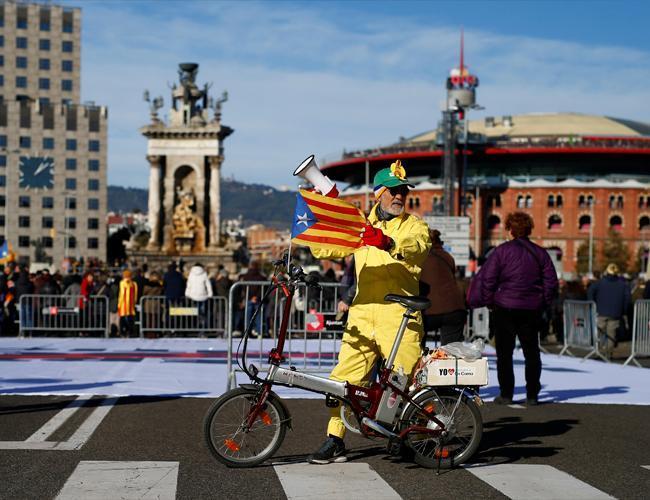
After their failed independence bid, which saw leaders being detained or fleeing abroad, Catalan separatists head into a new election this month divided over the future of their region but united against what they say is "repression" from Madrid.
The vote on Dec. 21 comes amid Spain's worst political crisis in a generation after Catalan lawmakers declared independence following a banned referendum.
Madrid's response -- to sack Catalonia's parliament and government, suspend its autonomy and organize new elections -- has prompted a string of demonstrations in the region of 7.5 million people. But Catalans remain deeply split on independence, and several polls suggest pro-secession parties might struggle to win enough seats to form a new regional government.
"From now until Dec. 21, the dispute in the pro-independence camp is going to get worse and they will exchange blows," said Oriol Bartomeus, a political science professor at the Autonomous University of Barcelona. "They could open up a rift that prevents them returning an overall majority."
In 2015 pro-independence parties won 47.8 percent of the vote, allowing them to ally with the far-left CUP to form the largest bloc in the region's parliament.
But the latest polls show support for secessionists hovering around 45 percent -- potentially putting another majority out of reach.
Lawmakers in Catalonia -- a wealthy but indebted region which generates a fifth of Spain's GDP -- sent shock waves through Europe on Oct. 27 by voting to split from Spain.
Their decision followed a banned referendum on the subject which separatists say provided a mandate for independence but which Spanish courts ruled to be illegal.
The conservative government of Spanish Prime Minister Mariano Rajoy invoked an unprecedented constitutional power to suspend Catalan autonomy and dismiss its leaders. Rajoy and fellow opponents of Catalan independence have hitched their hopes on a record turnout on Dec. 21 to return a legislature in favor of unity with Spain.
But opponents of independence are themselves divided, with Rajoy's Popular Party and its liberal ally Ciudadanos -- as well as the main opposition socialists -- failing to form a unified candidate list.
"I don't see a repetition of the alliance of three independence parties," said Jose Pablo Ferrandiz of the polling firm Metroscopia. "But neither do I see a government formed from three anti-independence parties."